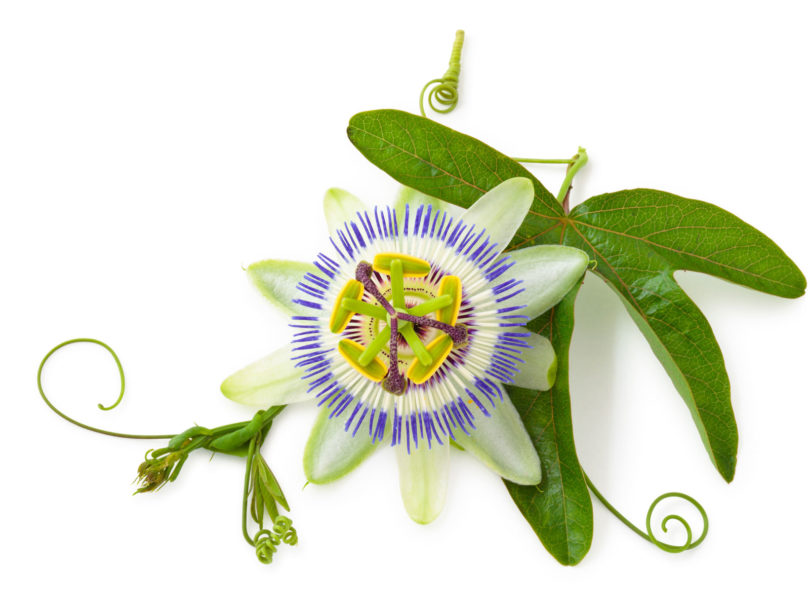With humid, subtropical summer weather and rich soil, Hampton Roads is a gardening mecca. It’s easy for even the most inexperienced gardener to make a beautiful, relaxing space in the backyard or even just on a balcony.
While research shows the act of gardening eases stress and improves mental and physical health, what you plant can improve your mood, too. You can maximize the relaxing atmosphere in your garden by choosing the right plants and herbs. Follow the tips below from Kathleen Maier, director of Sacred Plant Traditions, a plant educational center in Charlottesville, Va., to create your gardening getaway.
Choose Plants that Bring Visual Joy
The most important thing is to plant the plants you love, says Maier, a practicing herbalist for over 20 years. Plant what you’re attracted to, and relaxation and peace will follow.
Some of Maier’s favorite plants for visual relaxation include magnolia, which have a great scent and similar shape to a lotus, a flower associated with meditation. She also suggests saucer magnolia, whose petals bloom and fall in showers of pink.
Because most flowers grow easily in Hampton Roads, you have many choices and can find flowers that make you feel happy and calm. By visiting a botanical garden — such as the Norfolk Botanical Garden or the Master Gardeners’ Display Garden at Blue Bird Gap Farm in Hampton — or by looking at gardening books, you can find what will bring you pleasure and peace.
Find the Scent of Stress Relief
Many flowers and herbs also give off calming scents, so you can enjoy the benefits of aromatherapy in your own backyard.
“All the mints in some ways can be relaxing,” Maier says. “Just smelling them when you bruise the leaves, that’s like aromatherapy. Mints, especially peppermint, go to the limbic system (which controls basic emotions in the brain) and really help us to remember. When we are anxious, peppermint takes us back to a memory.”
Many mints, especially peppermint, can take over a garden, so Maier recommends planting them in containers instead of the ground. You can also plant spearmint and lemon balm for their scents or to add to teas for additional stress-relieving benefits. Lavender, the very scent of relaxation, can be planted along a patio or in pots.
Plant Your Own Calming Teas
The herbs you place in your garden or in containers can also be harvested to use in teas.
“One of my favorites is passion flower,” Maier says. “It really is a very stunning, exotic flower. It’s the flowers and leaves you take for tea or tinctures.
You can also grow chamomile, a well-known relaxing herb. German chamomile in particular can help with sleep and digestion, Maier says. She also recommends an herb called skullcap to help with sleep, anxiety and circular thoughts that can keep you awake at night.
“Skullcap is really wonderful,” she says. “You want to plant it in part of a garden that gets a lot of moisture, maybe at the bottom of a hill. The leaves and flowers are just absolutely amazing in a tea. It’s very restorative.”
Another herb, tulsi, is a type of basil. It’s very aromatic and makes delicious teas, says Maier.
“It is what herbalists call an adaptogen; it helps our bodies adapt to stress,” she says. “It works on our adrenal cortex and our kidneys. It really helps with the cortisol response to stress.”
Even roses, which provide a great scent and visual beauty, can be used in teas.
“We use rose petals a lot in our medicines,” says Maier. “All plants in the rose family are very astringing and tonifying. They are great for inflammation as well as anxiety and grief.”
Enjoy the Fruits of Your Labor
Virginia also offers a great climate for growing fruit like pomegranate, peaches, pears or apples. These trees offer beautiful flowering blooms and later provide nutritious fruits.
Maier warns gardeners to be patient with fruit trees, which can take a while to be productive.
“For the first time this year, I harvested pomegranates in my Charlottesville backyard,” Maier says. “It took a long time. I thought it was never going to fruit. Fruit trees are part of the medicine. They are nurturing and rejuvenating.”
Get Started with Your Relaxing Garden
Beginning gardeners should keep it simple. Start by planting close around your house, and start with a few plants that you love. You can play with herbs in different containers so you can easily try many things at once or switch out herbs you don’t enjoy.
Consider a bench to rest on, or a small fountain to create the trickling sound of falling water. If sound relaxes you, plantings of tall ornamental grasses such as pampas grass can create a pleasing rustling sound in a breeze.
If you are interested in using herbs in teas or tinctures, you can also seek out herbalism courses. Many one-day courses give you the basics you need to learn how to grow, harvest and use herbs from your own garden. Check out the Herb Society of America (www.herbsociety.org) for information on local herb society chapters and classes.
No matter your skill level, you just need to get started and get your hands in the dirt. The plants will take care of the rest.
“Plants are super resilient,” Maier says. “You just want to plant the plants. Just put them in the ground and nourish the soil. Get some good compost or good soil, and they are really going to thrive.”



